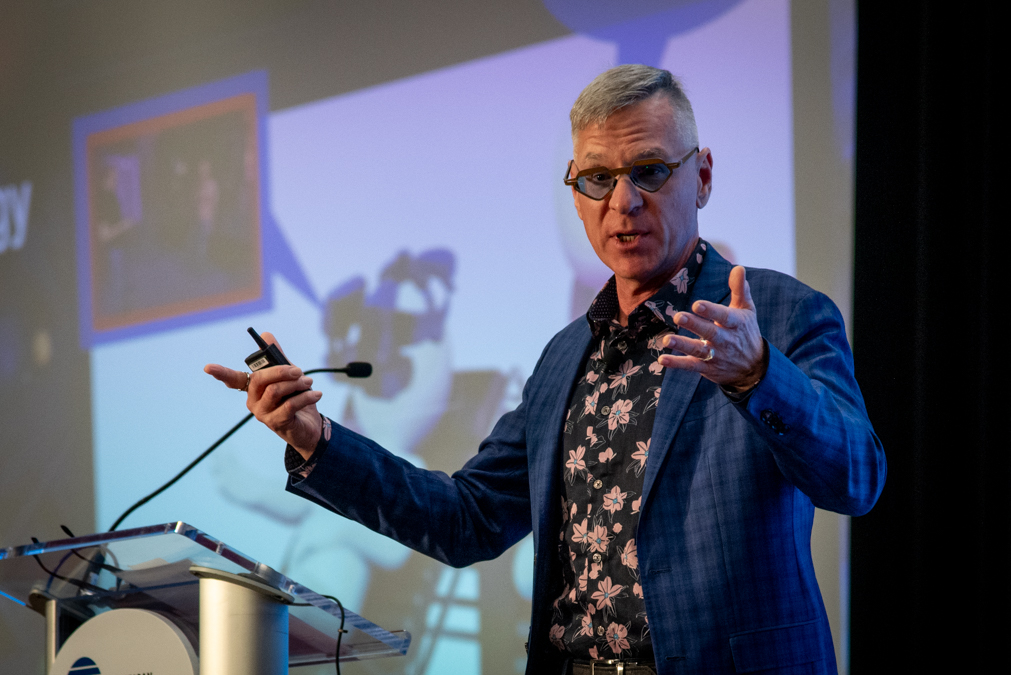You are here
Tulane School of Social Work’s Dean Presents at Consumer Electronics Show

The technology world recently converged in Las Vegas for the world’s most powerful tech event. This year’s annual Consumer Electronics Show (CES) was held on Tuesday, Jan. 9, 2024, at the Las Vegas Convention Center. This year’s presentations showcased how AI, sustainability and inclusive tech design will advance tomorrow’s technologies in a variety of fields including digital health. More specifically, presentations took a deep dive into the intersection between behavioral science and technology with a full day of programming covering topics like social media, artificial intelligence, privacy, XR, gaming, and digital therapeutics.
One such presenter was Tulane School of Social Work’s Dean, Patrick Bordnick. Dr. Bordnick is a pioneer in the use of virtual reality and other disruptive technologies for substance abuse and behavioral disorders. He has pioneered assessment and interventions using VR and is continuing to examine ways this technology can empower people to make long-term changes in their lives.
“The field of behavior science (e.g. social work, psychology) is uniquely suited to provide research-backed answers to the biggest questions we face about how humans and technology can most effectively interact,” said Dr. Bordnick. He was among the CES presenters for a session titled, “Work, Create, and Play for Good in Extended Reality.” This presentation explored how virtual, augmented, and mixed reality can provide immersive experiences that can be designed to enhance positive and potentially life-changing behaviors. The session explored recent findings about the promise of extended reality in improving learning and creativity at work as well as commitment to change and enjoyment of gaming for good.
“Using gaming for social good is possible if we understand the connection between human behavior, emotions, and action. Harnessing the power of extended reality can go beyond what most have imagined. It can be used for innovating workforce and workplace learning, optimizing creativity, and enjoying the experience,” said Dr. Bordnick.